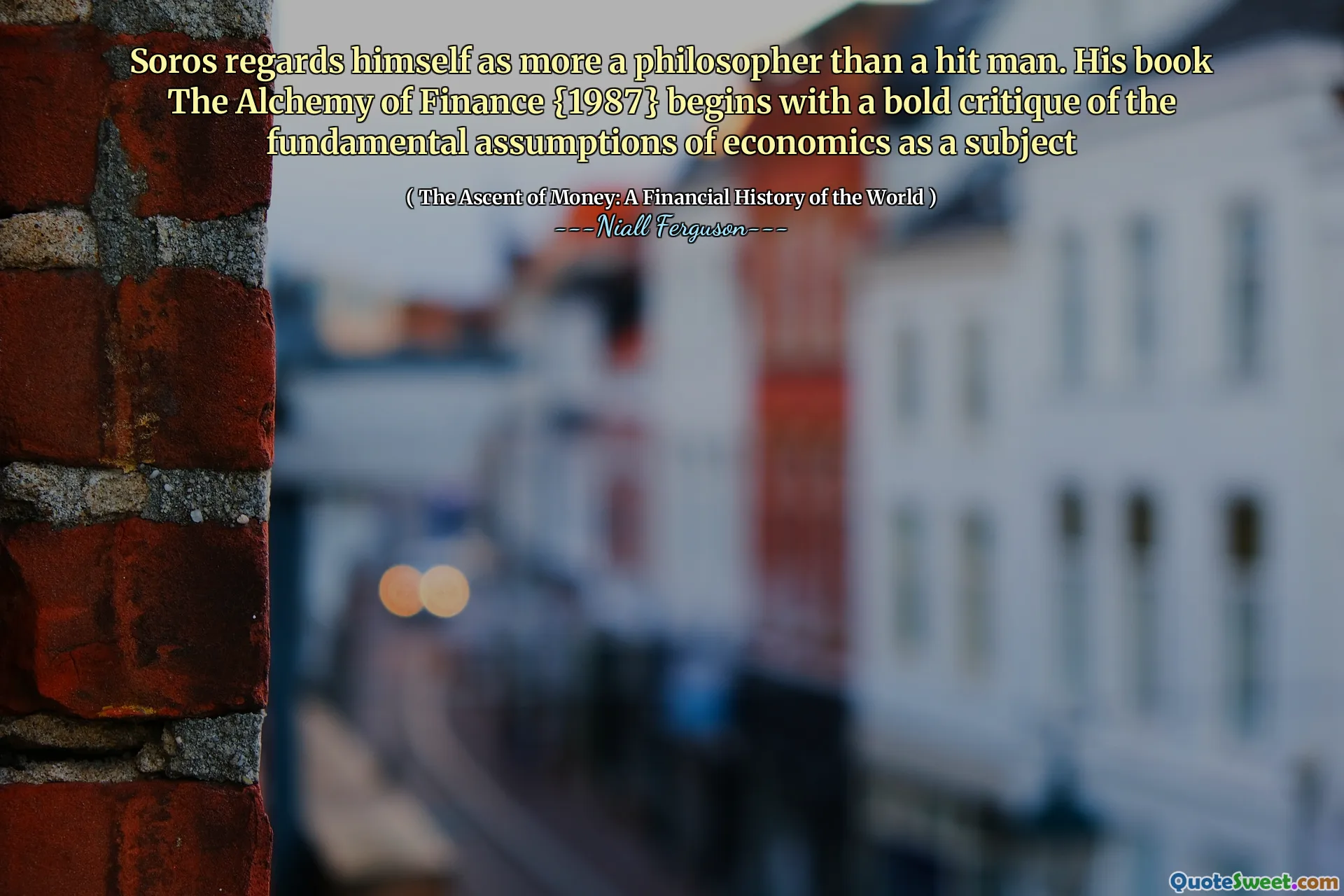
Soros regards himself as more a philosopher than a hit man. His book The Alchemy of Finance {1987} begins with a bold critique of the fundamental assumptions of economics as a subject
Soros perceives his role primarily as that of a philosopher, rather than simply a financial operator. In his book "The Alchemy of Finance," published in 1987, he opens with a significant critique of the foundational principles of economics, suggesting that traditional economic theories are flawed. His perspective encourages a deeper understanding of the complexities involved in financial markets.
Similarly, Niall Ferguson's "The Ascent of Money: A Financial History of the World" explores the evolution of finance throughout history. Ferguson delves into how financial systems have shaped societies and economies, offering a comprehensive view of money's influence over time. Both authors invite readers to reconsider the nature of finance and its philosophical implications.











